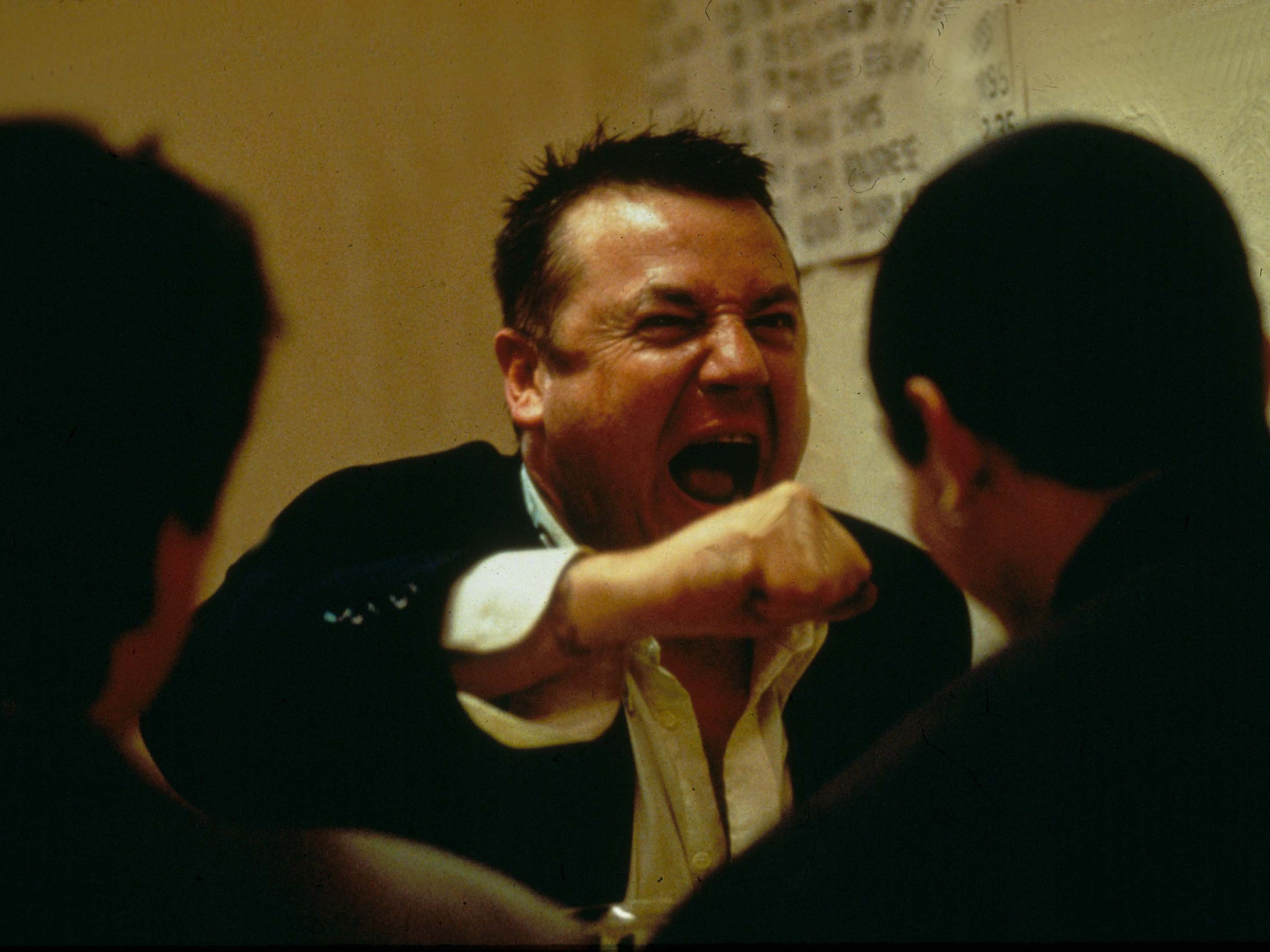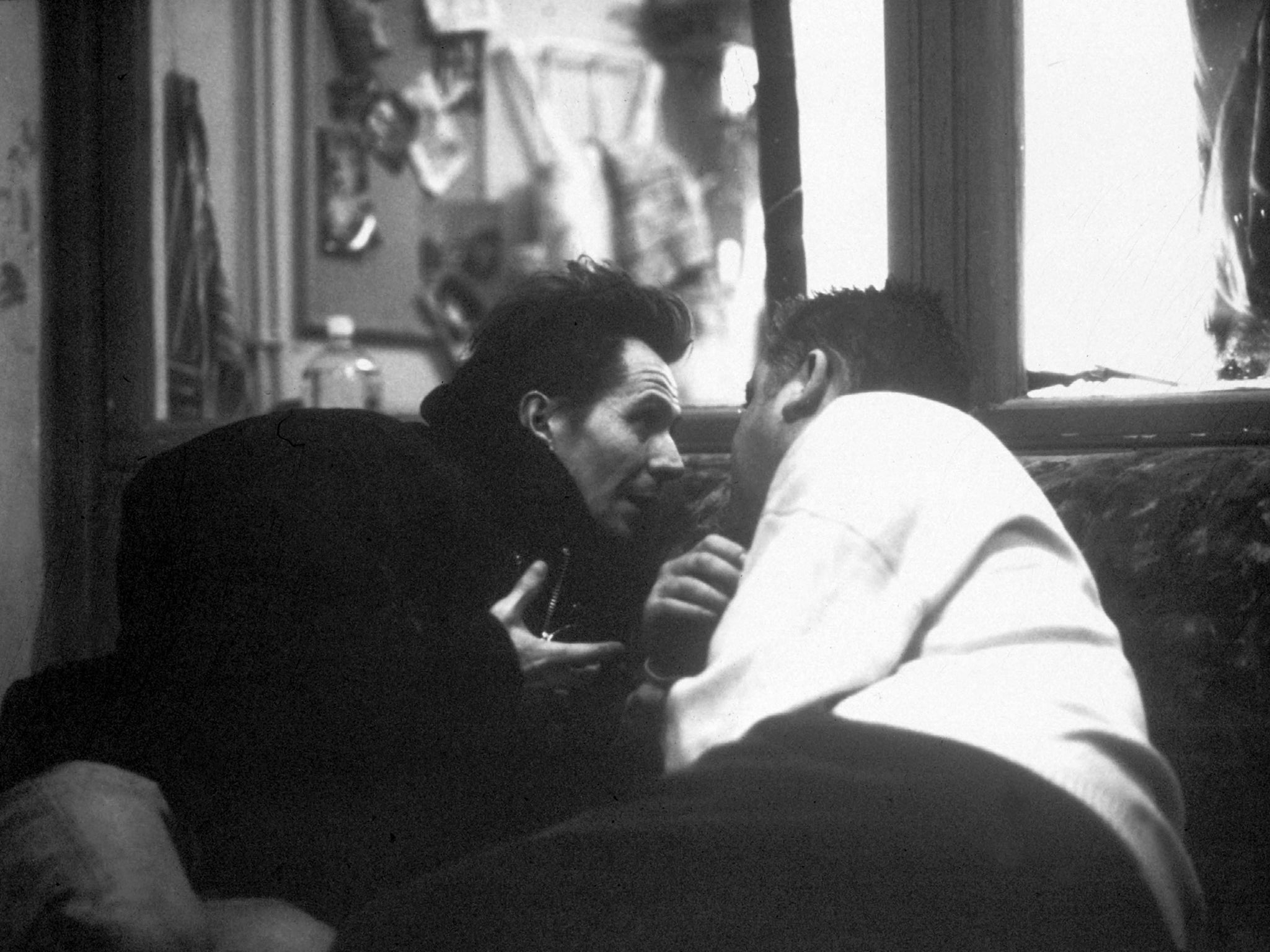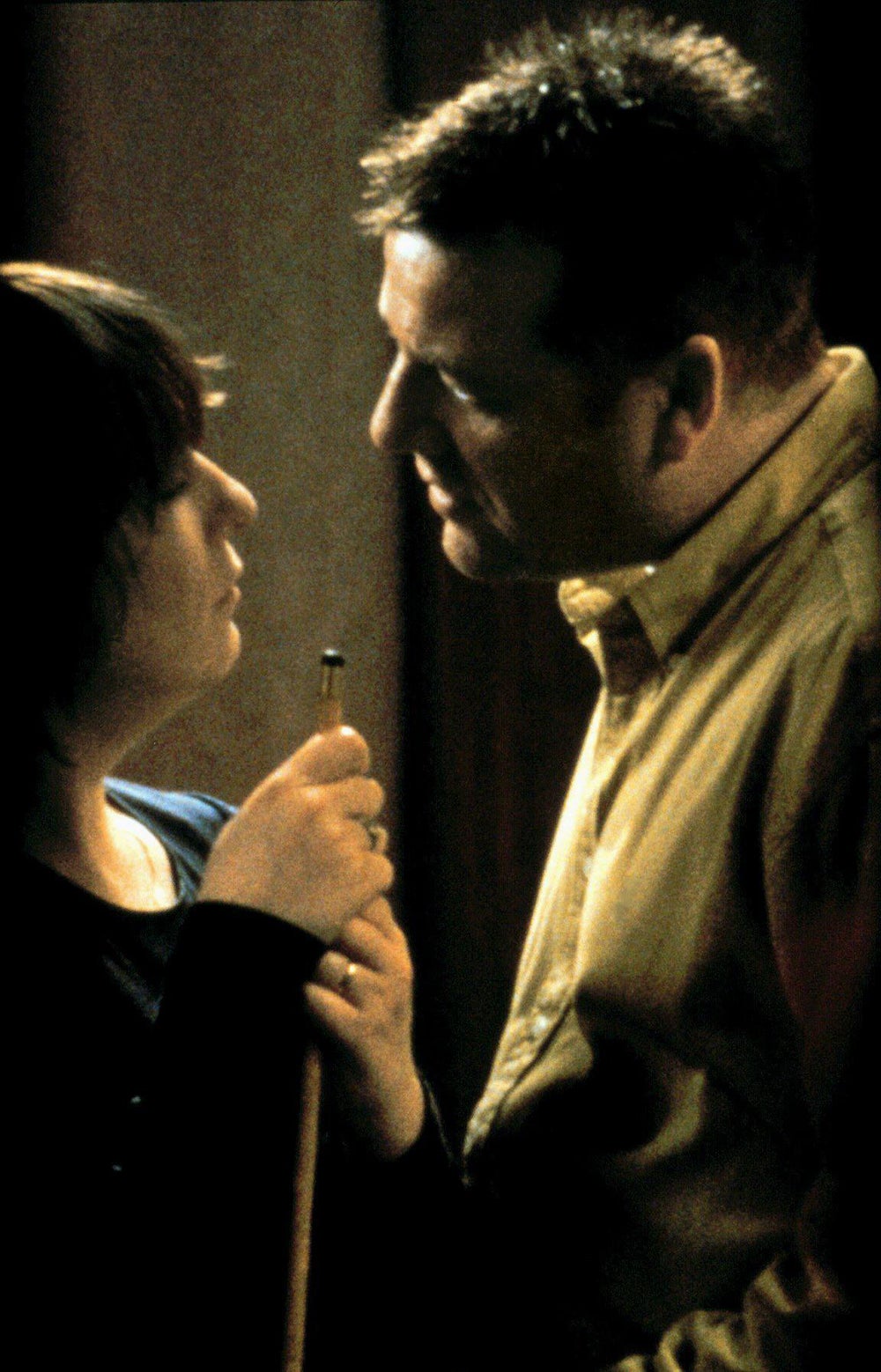Nil by Mouth was Gary Oldman’s bleak, brutal triumph – but why hasn’t he directed anything since?
Released 25 years ago, the celebrated actor’s filmmaking debut was widely praised as one of the best British films of its era, but it remains his sole directorial effort. Producer Douglas Urbanski tells Geoffrey Macnab why

Last summer, Gary Oldman and producer Douglas Urbanski went to the British Film Institute to watch a restored version of Nil by Mouth, the movie they made 25 years ago. “Neither of us had seen the film in years and years,” Urbanski recalls. “I have to tell you we were knocked over by how really wonderful it is; it really is a masterpiece. We were both pleasantly surprised to see how it remained powerful and potent – and, in a weird way, very prescient about women, Time’s Up and #MeToo.”
Set around south London pubs, streets and on council estates, Nil by Mouth is a hyper-realistic drama about working-class life, alcoholism, masculinity and family strife. Back in 1997, when it premiered at the Cannes Film Festival, most critics agreed that Oldman’s “bleakly brilliant” and “brutally truthful” directorial debut was indeed one of the best British films of its era. The film’s two lead actors – Ray Winstone and Kathy Burke – won many awards. Oldman’s sister Maureen, under her screen name Laila Morse, picked up the first ever BIFA award for Breakthrough Performance for her role as family matriarch Janet – and she was 51 at the time.
Behind the camera, Oldman showed the same relentless energy and invention which has always made him so compelling on screen. In his screenplay, he drew ingeniously and brilliantly on his own hardscrabble family history growing up in New Cross. The film followed in the long tradition of British social realism but, reflecting its director’s mercurial personality, it had an aggressive intensity which you didn’t always get with Mike Leigh or Ken Loach. Whereas they gave the impression of being outsiders looking in at the worlds they depicted on screen, this was a story told from the inside, from the guts.
Nor was there anything tentative about the directorial style. With Oldman calling the shots, his actors knew they couldn’t try cheap tricks. He pushed Winstone and Burke to give the performances of their careers – him as the Bill Sikes-like Ray, her as his long-suffering wife, Valerie. “Gary wanted you to have a voyeuristic experience, almost as if you were looking through a keyhole at life,” Urbanski says. “At something you probably shouldn’t be seeing.”
Nil by Mouth appeared to herald the arrival of a major new British filmmaker. It seems all the more mysterious, then, that Oldman’s debut has been allowed to slip from view – and that he hasn’t directed another feature film since. To understand why not, it’s worth looking back at how Nil by Mouth was conceived.
By the mid-1990s, Oldman was already an established star. He had worked with British directors like Alan Clarke and Stephen Frears – on films such as The Firm and Prick Up Your Ears – and had gone on to play Count Dracula and Lee Harvey Oswald in big Hollywood movies directed by Francis Ford Coppola and Oliver Stone. His range was enormous. He could be cast as an old-world European aristocrat in one film and an English football hooligan or a punk like Sid Vicious in the next. Oldman started writing Nil by Mouth in 1993.
“We couldn’t raise any money,” Urbanski remembers. “Gary ultimately financed most of the film out of his own pocket.” The budget was around $5.5m (£4m). Potential financiers warned Oldman to abandon the project, which they dismissed as incomprehensible. They simply didn’t understand the script or the white, working-class south London milieu in which it was set.
French director Luc Besson heard about Oldman’s struggles and agreed to put up some of the money against certain foreign rights – and in return for Oldman acting in his next film, The Fifth Element. “As a result of that, Luc got Gary in The Fifth Element for a nominal fee,” Urbanski remembers of Besson’s sci-fi epic, which went on to become one of the highest-grossing French films in history. “I remember being in a taxi with Gary driving to Trafalgar Square. I said to him this deal we’ve done with Luc is a terrible deal but it’s a pivotal deal... without Luc’s initial commitment to some of those foreign territories, we probably wouldn’t have got it made. Gary sang for his supper and we got a couple of bucks from Luc.”

Working-class south London’s contribution to cinema history isn’t always acknowledged. Oldman, Charlie Chaplin and Michael Caine – three of the greatest names in British film history – were all born within a few miles of each other, in New Cross, Walworth and Rotherhithe. In Nil by Mouth, Oldman was returning to those roots.
“It was a story I needed to get out, to tell,” Oldman later said. “I had no great desire just to direct a movie for the sake of it.” He was sick of the “movies about movies about movies” that were then being made in Hollywood. Nor did he believe in Nicolas Cage’s Oscar-winning portrayal of an alcoholic in Mike Figgis’ Leaving Las Vegas. “Bottom line, you are not that charming: you stink and you bleed from your arsehole when you drink like that... Nil by Mouth is not going to be everybody’s cup of tea but it was a movie that I wanted to see. And that’s why I made it.”
The film is dedicated to Oldman’s father – a surprising gesture given that the patriarch played by Winstone is such a baleful and destructive influence on his family. It would be a mistake, though, to regard Nil by Mouth as directly autobiographical. It’s as much about Oldman himself as it is about his father. “I realised that I was repeating a lot of the behaviour of my dad, and what I’ve tried to do in my own life is to break that cycle,” he later told journalist Derek Malcolm. “I drank for 25 years over my father, but in the end you have to resolve that or go under. You have to find some way to forgive. Wherever you are, dad, here it is on screen. I forgive you.”
The film’s first image is a huge, sweaty close up of the face of Ray (Winstone) in a crowd at the bar, ordering a round of drinks. There is a haunted quality to him, an insecurity, which becomes only more evident as he swaps bawdy stories with his mates, Jamie Foreman’s Mark among them. He’s a violent alcoholic who, in the film’s most notorious and repulsive scene, beats up his pregnant wife, causing her to miscarry. Somehow, though, you retain sympathy for him. He has a “little boy lost” quality. He is inflicting suffering on others because he has suffered so much himself.
Oldman always argued that the women in the film were far more resilient than the men. They were the heroic ones who held families together, as characters like Ray or his brother-in-law Billy (Charlie Creed-Miles) go on their alcohol and drug-fuelled binges. Kathy Burke’s Val is never simply a victim or a figure of pity. She and Laila Morse’s Janet show extraordinary powers of endurance and empathy even as their menfolk wreak destruction around them.

The director often gives the film the feel of a documentary, or one of those semi-improvised John Cassavetes movies he so admired. He shoots in very long takes, using real locations: pubs, laundrettes and graffiti-strewn stairwells. He accompanies scenes with the original bluesy music Eric Clapton wrote for the movie.
The characters here speak in slang and swear words but still manage to be witty and expressive. In his very first movie as a director, Oldman broke all-time records for the use of the word “c***” on screen. It’s uttered more than 80 times, sometimes with humour, sometimes in throwaway fashion and sometimes with dark, misogynistic fury. (According to its Wikipedia entry, the film also includes 428 uses of the word “f***”, although it isn’t clear who has been doing the counting.)
Urbanski – who has gone on to produce such illustrious Oldman movies as The Darkest Hour and Mank, as well as a forthcoming adaptation of Mick Herron’s Slow Horses for Apple TV+ – insists that the actor has never lost his appetite for directing. Oldman has written what is said to be a brilliant screenplay about the world’s first conjoined twins, Chang and Eng. He is also developing a biopic about another south Londoner, Eadweard Muybridge, the inventor and photographer born in Kingston upon Thames in 1830. You can see the attraction. Muybridge had an obsessive interest in capturing and recording motion on film but also, like Ray in Nil by Mouth, led a tumultuous and violent private life – he shot dead his wife’s lover.
Oldman is also reportedly keen on returning to the characters from Nil by Mouth in TV drama form, with new seasons looking at how their lives unfold at five-year intervals. It remains to be seen whether any of these projects will be made. Urbanski insists that the actor simply won’t take shortcuts when it comes to his directorial work.
“The types of films Gary is interested in are not always the easiest things to fund,” he explains. “We have been near filmmakers who’ve ultimately compromised and started cutting their budgets. Before you know it, you’re doing a $20m [movie] for $12m. We just roll our eyes because we know that when a director starts doing that, he’s deluding himself and the film ends up as real dogs***.”
“He wants to direct,” Urbanski continues. “He believes he will direct but he has made the decision in his life that he will not compromise because that is really where you lose it. The devil is in the details. We don’t want to make films and have them be less good than we want them to be.”
The restored version of ‘Nil by Mouth’ is expected to be released later this year
Join our commenting forum
Join thought-provoking conversations, follow other Independent readers and see their replies
Comments


Bookmark popover
Removed from bookmarks